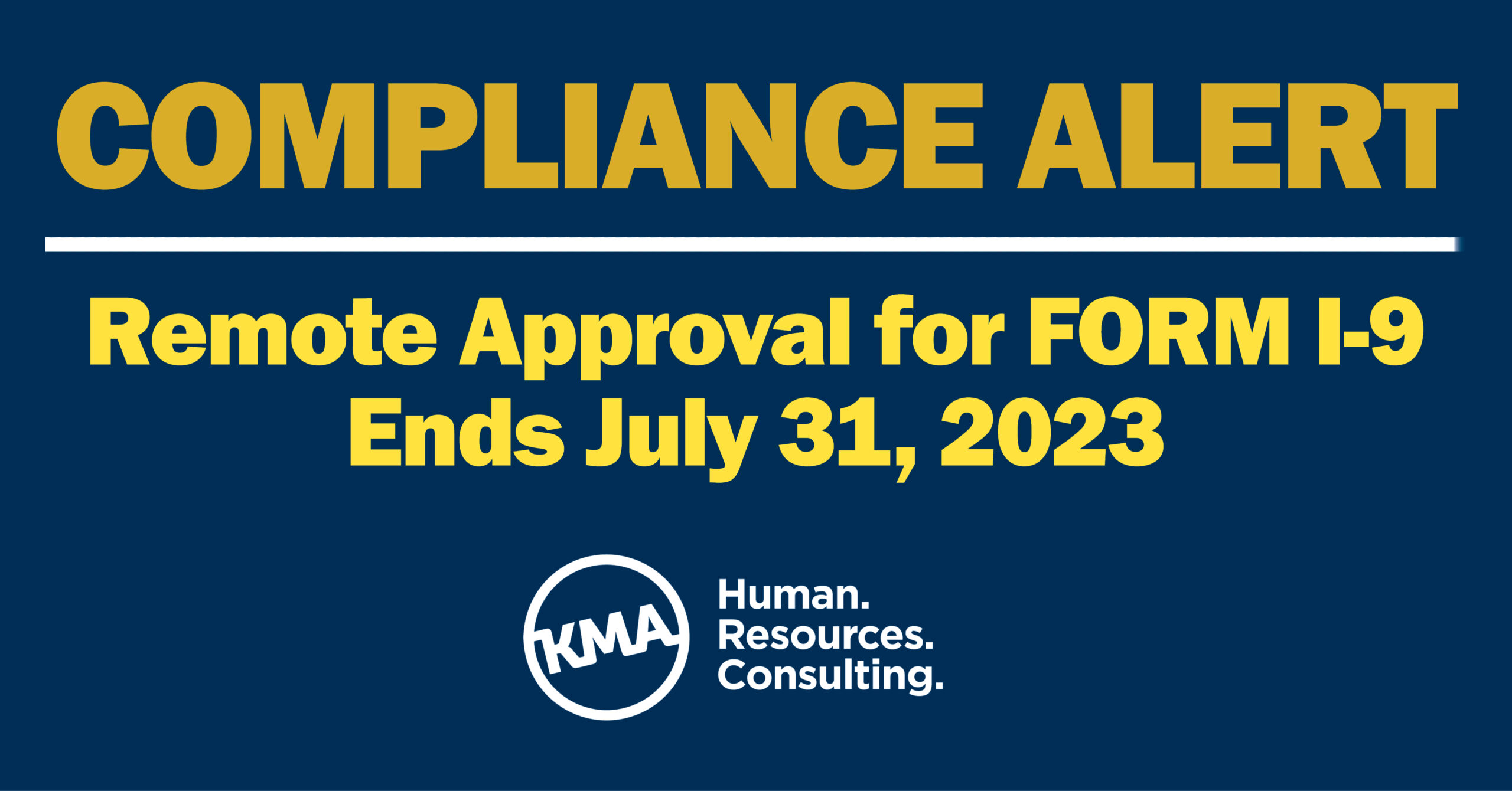COVID-19 temporary flexibilities for Form I-9, Employment Eligibility Verification, will end on July 31, 2023. U. S. Immigration and Customs Enforcement (ICE) recently announced that employers must complete in-person physical document inspections for employees whose documents were inspected remotely during the temporary flexibilities by August 30, 2023.
What This Means for Employers
- As of August 1, 2023, employers will no longer be allowed to exempt in-person verification requirements for Form I-9 ID requirements when hiring a remote employee.
- As of August 1, 2023, all employees onboarded must report to their employer within three business days for in-person verification of identity and employment eligibility documents for Form I-9 completion. If employees are physically present at a work location, the U.S. Department of Homeland Security (DHS) confirmed that no exceptions are applied for remote verification of identity and work authorizing documents. DHS noted that if newly hired or existing employees are subject to COVID-19 quarantine or lockdown protocols, DHS would evaluate remote verification on a case-by-case basis.
Here’s How to Comply
All employers who hired employees remotely from March 2020 through May 2023 exempting in-person Form I-9 ID requirements must do the following by August 30, 2023:
- If you have already returned employees to your workplace, continue, or start (as applicable) the process of in-person document review with the goal of completing in-person review before August 30, 2023.
- Compile a list of Forms I-9 completed using remote verification for active employees, and prepare a memo to attach to Forms I-9 completed for inactive employees using remote verification, which cannot be updated by in-person verification.
- Advise those on the list to review the instructions to Form I-9 and the acceptable documents list on the Form I-9 to establish a date as soon as possible with the designated company contact (see definition below) to present their chosen original documents for identity and employment verification purposes.
- Establish a process for the review by the employer’s designated representative of the documents in person.
Establishing an Authorized Representative for Hiring Remotely-Based Employees Who are Unable to Present Documentation in Person
Employers have and will continue to hire employees who live and work remotely in states other than where the company is located. These employers must establish an Authorized Representative as soon as possible who will be their agent for completing the Form I-9 identification process for your remote employees.
What is an I-9 Authorized Representative?
An Authorized Representative acts on behalf of the employer to sign off on identity verification documents for Form I-9. This provision in the Form I-9 rules can be viewed in full, along with questions and answers, on the USCIS website and allows the employer to designate anyone (except the new hire themselves) to review the I-9 form and identity documents, verify their authenticity to the best of their ability, and complete Section 2 of the certification.
Who can be an Authorized Representative for I-9?
An Authorized Representative can be anyone. The Department of Homeland Security does not require the Authorized Representative to have any particular qualifications, licensing, knowledge, experience, or affiliation with the employer. That being said, it’s in the best interest of your organization to establish a process for this.
Suggestions for who could be your Remote Authorized Representative
Notary
Lawyer, or Law Firm Representative
Bank Representative
If you would like additional guidance on complying with the Form 1-9 changes that will go into effect August 1st, please reach out to the experts at KMA.

